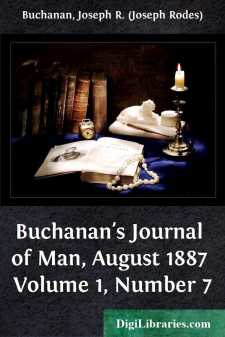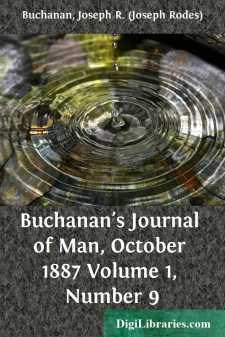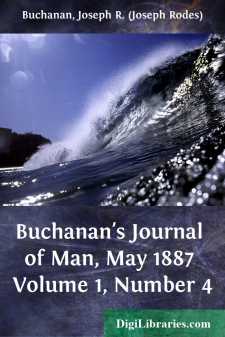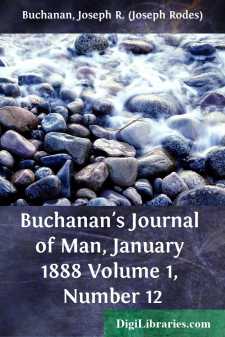Categories
- Antiques & Collectibles 13
- Architecture 36
- Art 48
- Bibles 22
- Biography & Autobiography 813
- Body, Mind & Spirit 142
- Business & Economics 28
- Children's Books 17
- Children's Fiction 14
- Computers 4
- Cooking 94
- Crafts & Hobbies 4
- Drama 346
- Education 46
- Family & Relationships 57
- Fiction 11829
- Games 19
- Gardening 17
- Health & Fitness 34
- History 1377
- House & Home 1
- Humor 147
- Juvenile Fiction 1873
- Juvenile Nonfiction 202
- Language Arts & Disciplines 88
- Law 16
- Literary Collections 686
- Literary Criticism 179
- Mathematics 13
- Medical 41
- Music 40
- Nature 179
- Non-Classifiable 1768
- Performing Arts 7
- Periodicals 1453
- Philosophy 64
- Photography 2
- Poetry 896
- Political Science 203
- Psychology 42
- Reference 154
- Religion 513
- Science 126
- Self-Help 84
- Social Science 81
- Sports & Recreation 34
- Study Aids 3
- Technology & Engineering 59
- Transportation 23
- Travel 463
- True Crime 29
Buchanan's Journal of Man, June 1887 Volume 1, Number 6
Categories:
Description:
Excerpt
I spoke of the possibility of moral education by means of magnetism, which has been carried out.” * * *
“Dr. Bernheim, a Professor of the Medical Faculty in Nancy who is a champion of hypnotism has written a book on ‘Suggestion and its Application in Therapeutics,’ in which a great many hypnotic cures are recorded.”
“Dr. —— quotes Franklin against magnetism but Sprengel in his Pharmacology says ‘Franklin, sickly as he was, took no part whatever in the investigation.’ The Academy again investigated (1825-31) somnambulism, discovered by Puysegur, Mesmer’s scholar. In their report of two year’s investigation, eleven M. D.’s unanimously pronounced in favor of all important phenomena ascribed to somnambulism. A fairly complete synopsis of their report will be found in my ‘Philosophy of Mystics.’”
“Du Potet first studied medicine, but disgusted by the poor results of Pharmacology he embraced magnetism. He performed a series of mesmeric experiments in the Hotel Dieu of so potent a nature that twenty M. D.’s of that celebrated hospital signed the minutes of these proceedings. People ran after Du Potet, pointing at him and crying ‘The man who cures.’”
“The respect for medical therapeutics never has been at as low an ebb as just now. The public cannot be blamed for this lack of respect, for they have daily experiences of the ill results of medicine. Even high medical authorities are of the opinion that we have to-day a disintegration of medical principles worse than ever. More uncertain than therapeutics is the manner of diagnosing to-day! The public is well aware that each doctor has something different to say or prescribe. I have a personal case in point. During eighteen months I consulted seven different doctors, and got seven different contrary diagnoses as well as contradictory modes of treatment, and this, too, in the city of Munich, which is hardly secondary to any other city for its medical talent. Is there any cause to blame the public for running to the magnetizers? I should do so myself if my magnetic susceptibility was greater. In such magnetizers as even Mesmer, Dr. B. can see nothing but charlatans, but I desire to make him aware that a physician whose reputation he is cognizant of, Prof. Nussbaum in Munich, said to his audience in College, ‘Gentlemen, magnetism is the medicine of the future.’ As I am writing this I have been disturbed by a visitor desiring the address of a reliable magnetizer, as the physician recommended a magnetizer, as he was at his wits end.”
“In our medicine the adjunct sciences alone are scientific, and we must respect their high grade; but therapeutics we have none. Hence Mesmer should be called a benefactor to mankind, for he has pointed out the correct way. He, with Hippocrates, says that not the physician but nature cures—that the real therapeutics consists only in aiding the vis medicatrix naturæ. In this direction the professors at Nancy and Paris are laboring....













